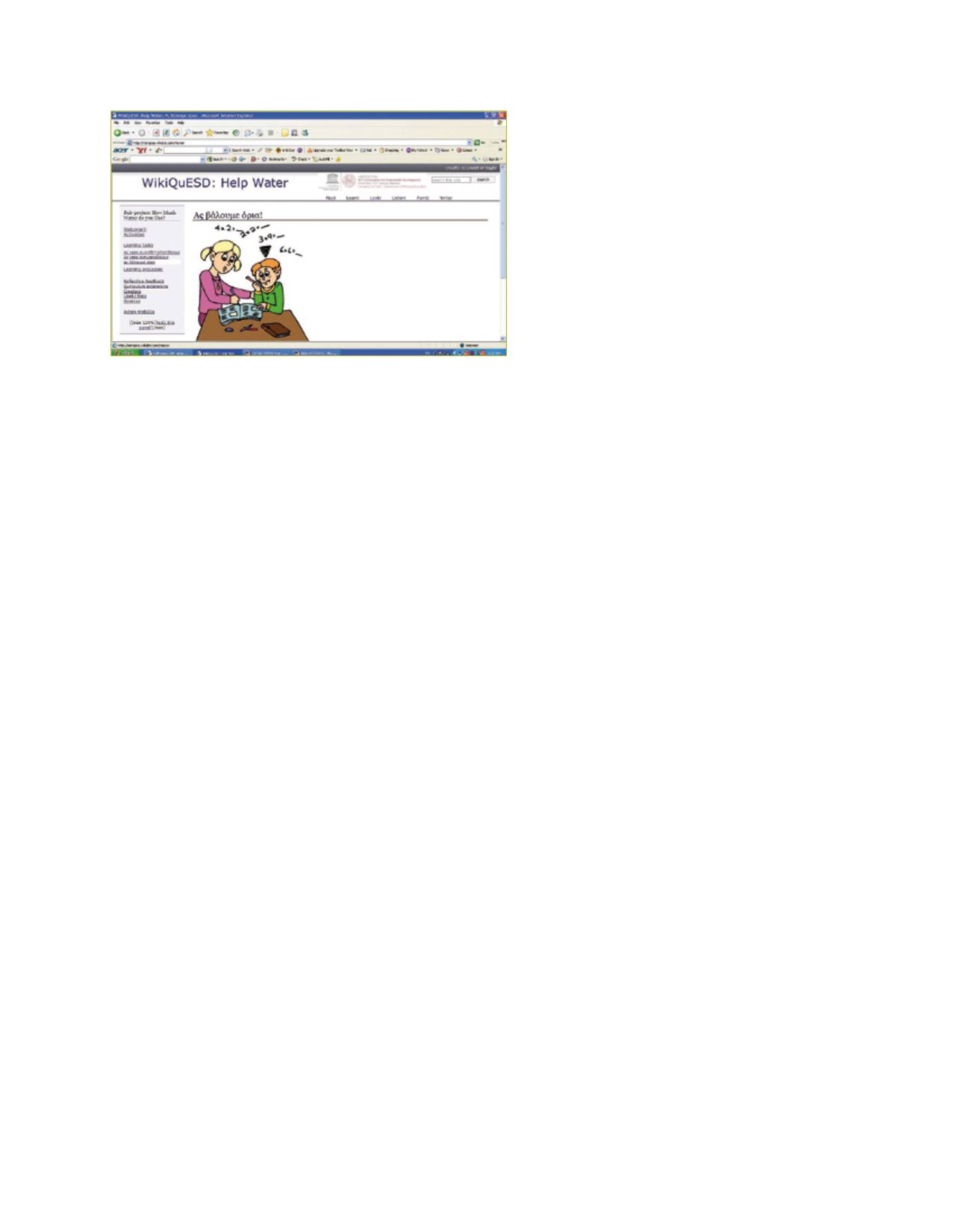

[
] 170
ESD. The content of the curriculum design and develop-
ment is participatory (e.g. involving end users, teacher
trainers, teachers and students in the process), interdisci-
plinary (involving various subjects), contextual (dealing
with local/global sustainable development issues),
holistic (balancing environmental, social, cultural and
economic pillars of sustainable development) and inter-
active (ICT-based). It also reflects a shift away from
reliance on structured and compartmentalized Master’s
course curricula by focusing on curriculum as process
(learner-centred) and praxis (transformative and reflec-
tive). It provides tools and services that facilitate social
networking and allows for virtual collaboration and
virtual peer mentoring amongst learners and e-tutors.
The joint Master’s programme will be ready to take its
first students in the academic year 2012-13. It will consist
of 120 European Credit Transfer and Accumulation
System (ECTS) credits – 90 for the course work and 30
for the dissertation.
Changes envisaged include: greater access of expe-
rienced teachers and teacher trainers to be trained as
ESD Leaders in their formal and/or non-formal settings
independent of temporal and geographical restriction; an
interdisciplinary and individualized programme of study
on how to use ICT in integrating ESD issues reflecting
environmental, social, economic and cultural perspec-
tives; competent ESD practitioners taking leading roles
in their education settings and functioning as human
resources for transformative ESD practices; and promo-
tion of virtual student and staff mobility, which adds
value to a new dimension of mobility.
TEMPUS Project ‘Reorient University Curricula to Address
Sustainability’
A consortium consisting of six European Universities
(University of Crete, University of Athens, Dublin
City University, University of Padova, University of
Bordeaux and University of Stockholm), together with
universities from Egypt (Heliopolis University for
Sustainable Development and Suez Canal University),
Jordan (Hashemite University and University of Jordan)
and Lebanon (University La Sagese and Notre Dame
University), together with the UNESCO Regional
Office for the Arab States and three NGOs, MIO/
ESCDE/MEdIES, IndyACT and SEKEM Development
Foundation, formed a consortium under the coordina-
tion of the University of Crete to submit a TEMPUS
project entitled ‘Reorient University Curricula to
Address Sustainability’. The project was approved by
the relevant authorities of the European Commission.
The overarching goal of the project is to help partner
higher education institutions to infuse ESD into their
curricula and teaching methodology through capacity-
building among university staff. The key question is
how to best advance curriculum change towards ESD,
given the regional priorities and the need to modern-
ize curricula to address ESD. This cannot be achieved
without well-prepared and committed staff to lead
curriculum reform and innovation.
WikiQuESD
This concerns an action research initiative geared towards developing
strategies for using digital media and technology to help pre-service
and in-service teachers both understand and contribute to the UN
Decade of Education for Sustainable Development (DESD). A major
question addressed in this project is how to profit from open educa-
tion resources concerned with sustainability issues and how to
empower teachers to function as change agents with the support of
more advanced learning technologies. ‘WikiQuESD’ integrates Wiki
technologies, the WebQuest idea and ESD. It is used as a scaffolding
hypermedia tool to turn teachers from instructional content users to
ICT-enabled ESD curriculum developers. WikiQuESD applications
are being designed to use multimedia (images, animation, videos,
text and sound), various mind tools and open education learning
objects to promote collaboration, connectivity, ‘real-world’ learn-
ing and systems thinking, which are emerging as key pedagogical
methods conducive to education for sustainability. Results of an
assessment study revealed that the WikiQuESD concept and plat-
form can give both teachers and students a voice in teaching and
curriculum decisions that is often neglected in education.
ICT-enabled ESD
Seven European universities with considerable experience in the fields
of ICT and ESD, fromGreece (University of Crete), Ireland (Dublin City
University), Latvia (Daugavpils University), Cyprus (FrederickUniversity
and Open University of Cyprus) and Sweden (Uppsala University),
formed a consortium under the coordination of the University of Crete
(UNESCO Chair ICT in ESD) to submit a project entitled ‘ICT-enabled
in Education for Sustainable Development’ within the framework of the
ERASMUS Virtual Campus Programme. This project, which has been
selected and financed by the European Commission, aims to develop
a joint online Master’s degree in the field of ICT in ESD, offered in
English. It targets experienced practitioners in schools, colleges, commu-
nity education, non-governmental organozations (NGOs), government
bodies and development agencies, all of whom are engaged in applying
ESD in many different contexts and countries.
Through this joint effort, we are making considerable innovative
progress, both to improve our own universities’ sustainability profiles
by developing learning environments conducive to ESD supported
by ICTs, and also to develop a new, open and flexible postgraduate
programme that responds to the increasing needs of experienced prac-
titioners who want to play a key role in moving forward the issue of
WikiQuESD authoring and learning platform
Image: V. Makrakis
















